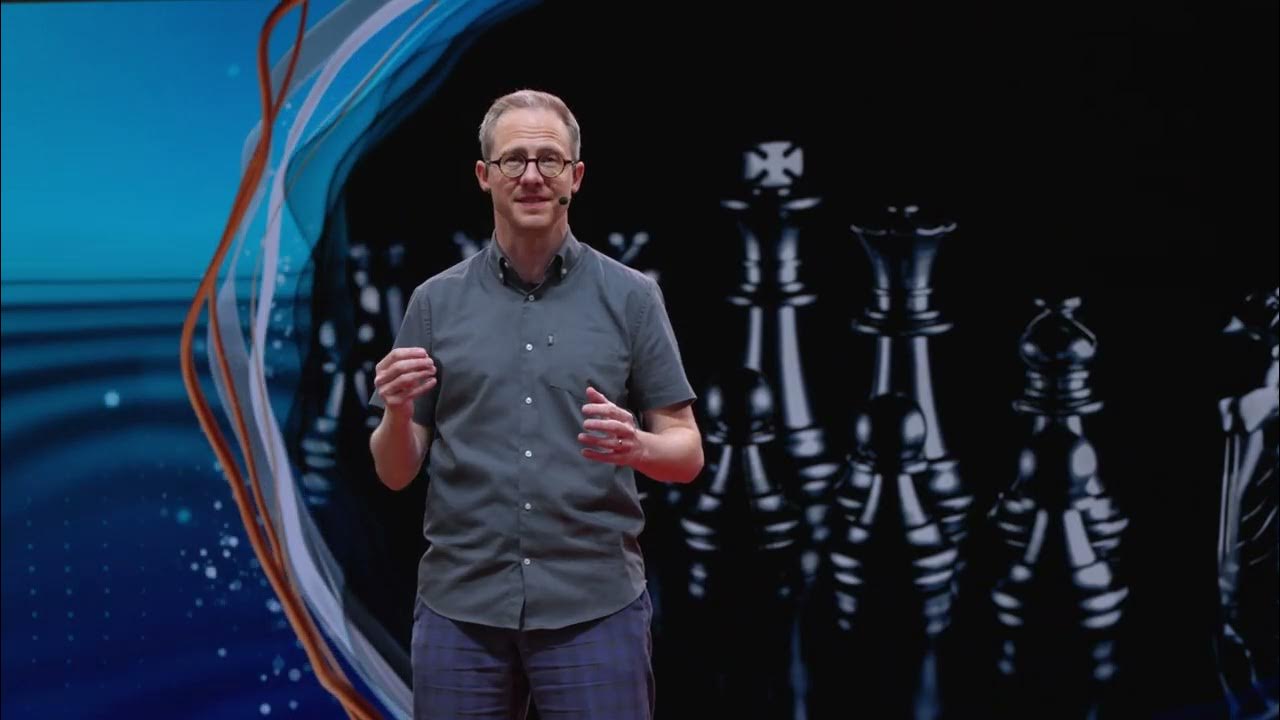What causes wellness | Sir Harry Burns | TEDxGlasgow
Summary
TLDRIn this thought-provoking session, the speaker explores the concept of wellness, moving beyond traditional medical views that focus solely on disease prevention. Drawing on theories from Adam Smith, Viktor Frankl, and Aaron Antonovsky, the talk delves into the importance of resilience, meaning, and social support in fostering well-being. The speaker highlights how early life experiences, social conditions, and a sense of purpose can dramatically impact health outcomes. Emphasizing that wellness is a complex interplay of biological, psychological, and social factors, the session advocates for a holistic approach to health, with examples of successful initiatives in Scotland and beyond.
Takeaways
- 😀 Wellness goes beyond avoiding illness – it involves creating conditions for health and well-being.
- 😀 Adam Smith's *Theory of Moral Sentiments* introduces the idea of sympathy, where humans naturally care for others' well-being.
- 😀 There is a spectrum between pathogenesis (disease) and salutogenesis (well-being), with a focus on factors that promote health.
- 😀 Doctors are trained to focus on pathogenesis (disease), but salutogenesis, which promotes health, is often overlooked.
- 😀 Social circumstances, such as poverty, alienation, and chaotic early lives, significantly impact health outcomes.
- 😀 Resilience and strong community support play a key role in individual and collective well-being.
- 😀 The concept of salutogenesis highlights the importance of a sense of meaning, control, and connection to others in maintaining wellness.
- 😀 Early childhood experiences, including family dynamics and social support, have lasting effects on health and wellness.
- 😀 The cycle of alienation in communities, such as in areas with high poverty, exacerbates mental health issues and physical illness.
- 😀 Practical interventions, such as bedtime stories for children, can improve cognitive function and overall well-being in early childhood.
- 😀 Addressing social isolation and providing purpose to marginalized individuals can break cycles of poverty and illness, as seen in projects like Homeboy Industries.
Q & A
What is the main idea behind the speaker's discussion of 'wellness'?
-The speaker emphasizes that wellness is not just the absence of illness, but a broader concept that includes factors like resilience, meaning, purpose, and community support. Wellness involves a balance between addressing disease and promoting health, as explored through the concept of 'salutogenesis'.
How does Adam Smith's work relate to the discussion of wellness?
-Adam Smith's 'Theory of Moral Sentiments' introduces the idea that humans are motivated by both self-interest and a concern for the welfare of others. This idea helps frame wellness as a balance between individual benefit and the well-being of society, aligning with the concept of salutogenesis.
What is the difference between pathogenesis and salutogenesis?
-Pathogenesis refers to the study of disease and its causes, while salutogenesis focuses on the factors that promote health and well-being. The speaker advocates for a shift towards salutogenesis, which considers how social, psychological, and environmental factors contribute to health.
How does early life stress impact long-term health according to the speaker?
-The speaker explains that early life stress, particularly in chaotic or unstable environments, can lead to long-term health problems. Stress hormones increase, and brain structures, such as the hippocampus, may be affected, impairing one's ability to manage stress and learn, ultimately increasing the risk of physical illness.
What role does community support play in building resilience, according to the studies mentioned?
-Studies like Emily Werner's on Hawaiian children and Viktor Frankl's research on concentration camp survivors show that resilience is enhanced by positive relationships with mentors, supportive communities, and a sense of meaning and purpose. These factors help individuals overcome adversity and thrive despite difficult circumstances.
What is the connection between unemployment and health problems discussed in the transcript?
-The speaker highlights that unemployment, particularly in areas where people feel alienated and disconnected from society, leads to mental health issues, a loss of meaning and purpose, and ultimately physical health problems. Social isolation and lack of control over one's life contribute to chronic stress and poorer health outcomes.
What is the concept of 'alienation' and how does it affect people's well-being?
-Alienation, as described by Jimmy Reid in his rectorial address, refers to the feeling of despair and powerlessness caused by economic forces and societal conditions. This sense of alienation can lead to poor mental health, social isolation, and a cycle of poverty, which in turn negatively impacts physical health.
How does the Early Years Collaborative in Scotland aim to improve children's health?
-The Early Years Collaborative works to improve childhood experiences by focusing on small, actionable changes, such as ensuring children get bedtime stories, breastfeeding support, and smoking cessation. These efforts are aimed at promoting better cognitive and emotional development in children to improve their long-term health and well-being.
What is the significance of Viktor Frankl's quote, 'If you have a why to live, you can bear almost anyhow'?
-Viktor Frankl's quote underscores the importance of having meaning and purpose in life. It suggests that individuals who find purpose in their existence are better equipped to cope with difficult circumstances and maintain their well-being, regardless of external hardships.
What does the speaker suggest as a solution to breaking the cycle of poverty and alienation in society?
-The speaker suggests that addressing the root causes of alienation, such as early childhood stress, lack of meaningful employment, and social isolation, is crucial for breaking the cycle of poverty. Interventions should focus on providing support at every stage of life, from childhood to adulthood, to ensure better outcomes for individuals and communities.
Outlines

此内容仅限付费用户访问。 请升级后访问。
立即升级Mindmap

此内容仅限付费用户访问。 请升级后访问。
立即升级Keywords

此内容仅限付费用户访问。 请升级后访问。
立即升级Highlights

此内容仅限付费用户访问。 请升级后访问。
立即升级Transcripts

此内容仅限付费用户访问。 请升级后访问。
立即升级浏览更多相关视频

Is Mental Illness Real? | Richard Bentall, Ann John, Lucy Johnstone

Is Addiction Healthy? Are We Getting It ALL WRONG?

Dr. Jim Loehr, World Renowned Performance Psychologist | Repurposing Sport

Is there consciousness beyond the brain? | Philip Goff | TEDxNewEngland

It's Time to Focus on Health Prevention and Promotion | Derek Yach | TEDxMonteCarlo

Lifestyle and Disease Prevention: Your DNA Is Not Your Destiny
5.0 / 5 (0 votes)
